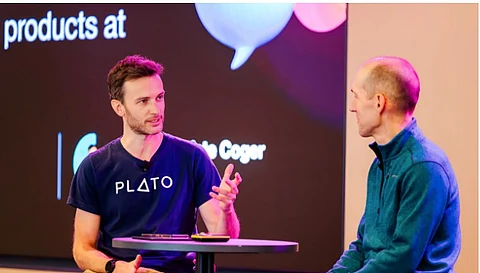

Jean-Baptiste Coger, co-founder and Chief Product Officer of Plato, now part of Coda, stands as a beacon of engineering leadership. As the influential Elevate conference organizer, Coger is actively contributing to the tech industry leadership.
"The future of engineering leadership is about fostering a culture of continuous learning and adaptation," declares Coger. His journey from YCombinator alumnus to a key figure in engineering leadership development mirrors the tech industry's growth.
The engineering sector is undergoing a seismic shift, with the global market projected to reach $1156.5 billion in 2023, growing at a 4.2 percent CAGR. This growth demands a new breed of leaders capable of navigating technical challenges and human dynamics.
"Engineering leadership in 2025 and beyond will require a delicate balance between mentorship and learning in group settings," Coger explains. The pressure on engineering leaders to drive velocity and deliver value quickly has never been higher. "Knowledge-sharing events for leaders like Elevate is one of the avenues to connect with key people and teams in the industry," Coger notes.
To address these challenges, companies are reimagining their leadership structures, adopting flatter hierarchies and cross-functional "pod" structures to enhance collaboration and innovation.
Known for the “No BS Conference for engineering leaders,” the Elevate conference has become a crucible for discussing challenges in the industry and gaining valuable insights from leaders worldwide.
In 2024, the conference garnered 1,000 peers with 50 sessions and 100 roundtables over 2 days. "True leadership thrives on actionable insights. This event empowers engineering leaders with lessons they can implement to drive real impact within their teams and equip them with the tools to inspire, innovate, and improve," says Coger.
The shift toward remote work, accelerated by global events, has become a permanent fixture in the engineering landscape. Coger's experience building and managing distributed teams has made him a sought-after voice.
"Remote-first is not just a policy but rather a complete reimagining of how we collaborate and innovate," he states. This shift is reflected in the changing demographics of the engineering workforce. With over 249,186 process engineers currently working in the US, the challenge lies in creating cohesive teams across digital spaces.
Coger's approach, as showcased in Elevate's sessions, focuses on asynchronous communication patterns and structured documentation habits. "The key is to create virtual water-cooler moments that foster creativity and connection," he explains.
As the industry changes, so must the tools and frameworks engineering leaders use. "Effective 1:1s, robust problem-solving frameworks, and data-driven decision-making are the cornerstones of modern engineering leadership," Coger asserts.
"The experiences and lessons of industry leaders are the best teachers, especially in engineering. Through joining these communities, anyone can learn, grow, and expand our connections," he added.
One key tool is the concept of "adaptive leadership," emphasizing flexibility and rapid response to changing technological landscapes. Some companies implement regular "tech trend sprints," where engineering teams explore and evaluate emerging technologies.
Critics argue that the emphasis on soft skills and strategic thinking might come at the cost of technical depth. Some may say there's a risk of creating leaders who are great at management but disconnected from the day-to-day realities of engineering.
Coger acknowledges these concerns but remains steadfast. "We are not advocating for less technical knowledge, but for a more holistic approach to leadership that encompasses both technical acumen and strategic insight."
To address these concerns, some organizations are implementing "tech immersion" programs for their leadership teams, ensuring that leaders maintain a strong connection to the technical aspects of their work.
The engineering industry promises even more dramatic changes in the next few years. Coger's vision for engineering leadership's future is ambitious and pragmatic. "We expect to see a new generation of engineering leaders who are better equipped with tools and insights than ever," he anticipates.
In such lightning-fast change, the focus becomes adaptability and that is critical. Some of the companies are also testing the waters with "role fluidity" whereby engineers rotate quite often among different specializations and leadership roles.
"The leaders who will thrive are those that balance technical excellence with strategic Arts in an integrated environment in which human talent and artificial intelligence can contribute their very best."
This conference, the Elevate conference, with Coger as chairman, represents a hallmark of this age of engineering excellence and lights the beacon for leaders ready to face complexities in the technology of the tomorrow.
